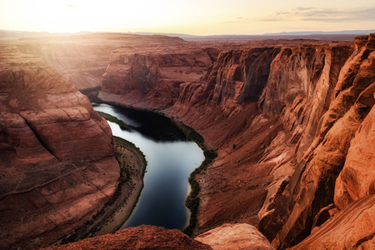Colorado River Crisis Deepens As Basin States Miss Deadline

The seven basin states that rely on the Colorado River have failed to reach an agreement on how to manage the waterway.
The U.S. Department of Interior issued the November 11, 2025, deadline in June. The reasoning behind the deadline was the upcoming expiration of the current guidelines, which will lapse in 2026.
Gene Shawcroft, Utah’s Colorado River commissioner, announced that the seven states had reached a “conceptual agreement on a framework,” but did not share any details of what the states agreed upon.
The seven basin states have historically struggled with agreeing on how the river’s water should be distributed fairly — especially as the water supply grows increasingly scarce.
The Colorado River’s water levels have hit historic lows in recent years. The Upper Basin States — Utah, Colorado, New Mexico, and Wyoming — and the Lower Basin states — Arizona, California, and Nevada — have been unable to reach an agreement on who should cut their water use during low flows. The tensions stem from the states’ differing interpretations of the Colorado River Compact, which was passed over a century ago.
Agricultural uses rely on about 70% of the Colorado River’s water. Furthermore, the river supplies roughly 40 million people in the basin states with water for municipal use.
With the current operating guidelines set to expire at the end of 2026, time is running out. If the states don’t get a deal in place, the federal government may step in to determine how water is allocated — a move that could trigger litigation and upheaval for cities, tribes, farms, and ecosystems.
